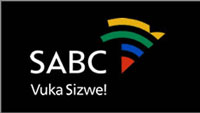
Top stories






More news







Logistics & Transport
Uganda plans new rail link to Tanzania for mineral export boost











With the municipal elections coming in 2011, the SABC as the dominant news service provider will play a critical role in ensuring that viewers and listeners are fed stories that demonstrate that the Government is winning in its strategy of providing services, fighting crime and eradicating poverty and unemployment.
On the flip side of the coin, the SABC, during the build up to the ANC elective conference in 2012, will be a useful platform for the lobbyists of the various candidates who will be vying for positions in the ruling party top six executive, and seats in the National Executive Committee.
In terms of the SABC delegation of authority, the public broadcaster's board, not just the chairperson and the CEO, is vested with the power to appoint the head of news. This delegation is critical in a sense that the head of news has the mandate to develop and implement news gathering and production strategies for the SABC. The main aim of the SABC board is to provide strategic leadership to the public broadcaster.
The board of the SABC is nominated by the public, recommended by the South African Parliament and appointed by the President of the Republic. In terms of the Broadcasting Act, the board consists of the non-executive members, the Group CEO, COO and the CFO as executive members. The SABC, as a corporatised and public entity, is regulated by the Companies Act, read with its memorandum and articles of association, and the Public Finance Management Act. The Government, as the sole shareholder of the public broadcaster, has to approve the appointment of the SABC head of news. The approval is not necessarily written into the Broadcasting Act, and the Broadcasting Amendment Act.
Regulated by a shareholder compact
The relationship between the public broadcaster and Government is regulated by a shareholder compact which is entered into on behalf of Government by the minister of communications. The objective of the compact is also to clarify the role of the board and management, particularly the CEO. The overarching theme of the compact is transparency, accountability, sound management and exercise of power within the delegated authority.
The SABC is also operationally regulated in terms of licences granted by the regulator, the Independent Communications Authority of South Africa (ICASA). One of the licence conditions indicates that the public broadcaster must transmit news on all its broadcasting services, both on TV and radio.
In line with corporate governance principles, particularly King Reports as well as the Protocol on Corporate Governance in the Public Sector, the SABC has various subcommittees to assist the board in discharging its responsibilities. As envisaged by the recommendations of the King Report, non-executive members chair these subcommittees.
All the SABC board subcommittees are constituted in terms of a charter envisaged by the Broadcasting Act and operate according to the specified and approved terms of reference. It has been reported that a subcommittee had been constituted by the board to oversee the selection and appointment of the head of news.
It is within this context that the SABC board members, who disagreed with the appointment of the new head of news, had a walk in the park when nullifying the appointment. All they had to do was to ask a legal question: "Do the chairperson of the board and the CEO, who is also an executive director of the board, have the authority and powers to appoint the head of news without a recommendation from the subcommittee and approval of the whole board?"
In the absence of authority, the appointment of the head of news was therefore null and void, for now.
The public broadcaster has more than 80% market share (more than 24 million viewers and listeners) of the television and radio markets, in terms of audience share. Most South Africans, particularly in the rural areas, get the news through SABC news bulletins and current affairs programmes. The fact that SABC broadcasts its news in all the South African official languages means that the public broadcaster news department is a critical component of the Government's and the ruling party's communications and political management strategies, respectively.
The SABC news room is the biggest in the African continent, with about 300 daily radio news bulletins, 17 daily TV news bulletins, approximately 28 daily radio current affairs shows and roughly five weekly TV current affairs shows.
The SABC daily news bulletins content is approved from the public broadcaster head office in Auckland Park, where all the senior news managers report to the head of news. It cost more than R470 million per annum for the SABC to gather and produce news. The SABC news bulletins on all TV and radio platforms largely have the same content, as all that is normally done is translating the news to various languages for the different news bulletins.
With the above-mentioned news gathering and production strategy in place, and the strategic role that the head of news plays, it is therefore easy to detect how important it is to have consensus and proper procedure being followed, when the head of news is appointed.
